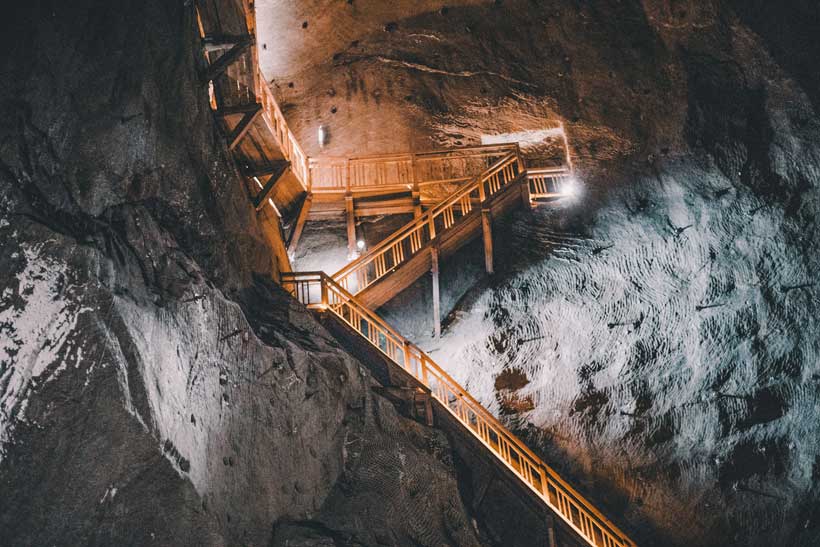Nickel is one of the non-renewable natural resources and is an ingredient to support daily human life. As one of the metal elements that characterize the needs of modern society, making nickel natural resources is able to improve the quality of life of the community and improve the country’s economy because not all countries have nickel natural products.
Indonesia’s decision to stop exporting nickel ore to the European Union was a proposal from President Joko Widodo by considering the value of exports that would be more profitable if the nickel ore was converted into more valuable commodities. Since the implementation of this policy, the export value of nickel-derived commodities has jumped significantly since 2020 (BPS, September 18, 2022). This can be seen from the export value of nickel derivatives reaching USD12.35 billion in January-August 2022 or growing by around 263 percent compared to 2019. Before the implementation of the nickel ore export ban, the export value only reached USD3.40 billion.
Indonesia’s nickel ore export ban policy received strong protests from the European Union by suing Indonesia through the World Trade Organization (WTO) in early 2021. The WTO is a large-scale trade organization whose main task is to regulate trade peace schemes between countries around the world by reducing or eliminating tariff and non- tariff barriers. So what is the EU’s interest in its strong protest and lawsuit at the WTO?
EU’s interest in taking its case to the WTO
The severity of the European Union’s protests over Indonesia’s policy of halting raw nickel ore exports is apparently followed by the interests of the European Union itself. The European Union is highly dependent on nickel ore imports for their industry, especially in the battery industry. The battery industry, which is an important sector for the EU economy, makes the EU worried that Indonesia’s policy will disrupt the supply of raw materials, so that it can increase battery prices and also result in job losses and significant losses to the EU economy.
The EU also opposes Indonesia’s downstream policy as an unfair trade barrier and violates international trade rules as it restricts the EU’s access to essential raw materials. The EU also accused Indonesia of violating WTO rules that prohibit unnecessary export restrictions. According to the EU, Indonesia’s downstream policy is not based on legitimate national security or Public Health reasons.
The EU wants to show that it is able to consistently commit to enforcing international trade rules. This lawsuit can be seen as an attempt by the EU to prevent other countries from implementing similar policies that could disrupt global trade. The EU wants to advance its interests in international trade. By bringing this lawsuit, the EU hopes to pressure Indonesia to change its policy and provide greater access to raw materials critical to the industry.
Indonesia’s response to the EU lawsuit
Indonesia responded to the EU lawsuit by consulting with the EU through the WTO dispute settlement mechanism. Indonesia explained that this downstream policy aims to increase the added value of natural resources (SDA) and create jobs in Indonesia. Legally, Indonesia has prepared a strong legal team to defend its interests at the WTO. Indonesia has argued that the downstream policy is in accordance with WTO rules. Indonesia has also actively defended itself at WTO panel hearings by presenting evidence to support its arguments.
Indonesia has also sought support from other countries in the WTO, especially developing countries that also have downstream policies. In fact, Indonesia is also conducting a campaign to raise public awareness of the importance of this downstream policy for the national interest.
Continuation of the conflict
In October 2022, a WTO panel ruled that Indonesia lost the case. However, Indonesia has appealed the decision. The appeal process is still continuing and there has been no final decision until now. On the other hand, the Indonesian government stated that Indonesia will remain committed to continuing this downstream policy despite the lawsuit from the European Union.
International Relations Theory in looking at this case
The EU’s lawsuit against Indonesia in the policy of stopping nickel ore exports is in accordance with “Neorealism Theory”. Neorealism is a theory that views international relations as a state of society without government or law (anarchy), where states are the main actors who compete with each other to maximize their power and security. neorealism emphasizes the role of actor power in international relations. In this case, Indonesia’s suspension of nickel ore exports is seen as a threat to the EU’s interest in maintaining access to nickel imports to maintain its competitive advantage and ensure its economic security. Therefore, the European Union with its great economic power has higher bargaining power than Indonesia by valiantly suing Indonesia at the WTO.
On the other hand, Indonesia as a developing country with abundant natural resources has a great desire to increase the added value of natural resources and reduce dependence on raw material exports. The downstream policy, including the suspension of nickel ore exports, is seen as an effort to achieve these goals and strengthen Indonesia’s bargaining position in world trade. However, Indonesia’s downstream policy is considered by the European Union to be contrary to its interests.
So, the difference in national interests between Indonesia and the EU is the main factor in the conflict, plus the attitude of the two parties who are hard on each other to achieve their national interests, making the conflict even more heated. Now, to find a single solution to this conflict is not easy, it requires a lot of negotiation and commitment from both parties to reach a fair and sustainable agreement.
